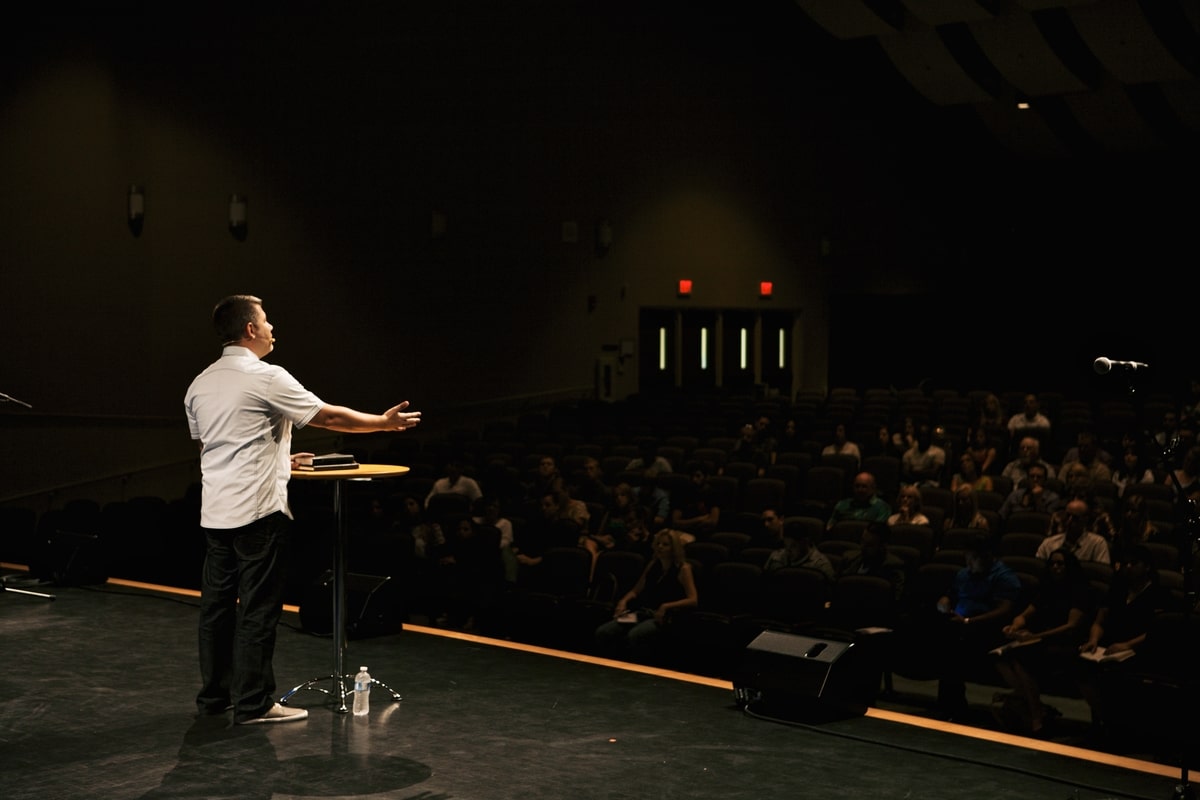Article
Tempted to Be Exceptional
Elite leaders are measured by production of one kind or another, but how does this apply to the pastorate?

Steve Jobs, Michael Jordan, and Tiger Woods stood alone in their fields as cutthroat geniuses. General Stanley McChrystal, Jocko Willink, James Stockdale and other fine military men offer lessons on leadership in extreme circumstances. Winston Churchill was the Last Lion. Teddy Roosevelt was the man in the arena who walked softly and carried a big stick. FDR reminded us that the only thing to fear is fear itself. And if you are anything like me, reading about such leaders is compelling and thrilling. And if you are anything like me, you are also tempted to model your habits after these exceptional leaders.
We do the same with great spiritual leaders of the past as we read of their prolific writing, the speed with which they could produce a sermon, or the number of times they preached in a day or a week. We read of their call to ministry in their teens and the decades of productivity thereafter. We see that they spent years expositing a single book of the Bible or that they preached through every book in the Bible. And again, we are tempted to model ourselves after them, this time with a little more piety.
I use the word tempted because what we are often interested in gaining by modeling ourselves after these leaders is not what God has called us to gain. We are tempted to pursue their levels of productivity, to take up habits to produce results like theirs. And we fail to ask three significant questions pertaining to life and ministry.
1. What aspects of life and character did those elite producers have to sacrifice (or simply disregard) in order to be elite?
Read enough biographies and memoirs of these leaders and an uncomfortable reality becomes obvious: they were largely unhealthy men at a relational and soul level. The elite producers and powerful leaders of the world (and, sadly, the church) have rarely been humble, loving, kind, gentle, patient men who prioritize family and care for the weak. They are commanders instead of caretakers, producers instead of pastors. I am painting with a broad brush, but I don’t think I am painting outside the lines. Two facts define every one of us as pastors: we are called by God to be a certain kind of man in a certain kind of ministry (1 Timothy 3, Titus 1), and we are limited by our capacities. In order to be elite by the world’s standards we generally need to set aside some aspect of our call and apply what capacity we do have to things that aren’t primary in God’s sight.
2. Second, has God given you the same gifts and capacities He gave to them?
God doesn’t distribute gifts and talents equally. This is profoundly obvious, and we are generally comfortable with it when comparing ourselves to people in different fields. I am not offended that a professional athlete received the talents to be faster, stronger, and have better hand-eye coordination than me. I am not offended that an engineer has a better mathematical and problem-solving mind than I do. But the closer the comparison is to what I do, the more jealous I am prone to be and the more the comparison is offensive. I become insecure about someone who is a better public speaker than me because that is what I do. I take offense that someone else writes better sentences than me because that is what I do. I even get jealous when another pastor is praised for his sermons or his counseling because I too do those things and want the recognition. And I am guessing I am not alone in this pettiness.
We fail to recognize that God has given others different, and often greater, gifts than He has given us. Some pastors can prepare a great sermon in less time than others. Some pastors are more effortless speakers or intuitive counselors than others. And some pastors are given large ministries, which come with notoriety–so they are perceived as elite. We must be both realistic about and grateful for the gifts God has given us lest we fall into temptation to compare and compete.
3. Third, what exactly is a pastor supposed to produce and what is a church supposed to produce?
Elite leaders are measured by production of one kind or another, but how does this apply to the pastorate?
Churches measure all sorts of metrics—attendance, baptisms, giving, group participation—but those aren’t rightly what the pastor or church is producing. At least, I hope not. You could say that we are to produce disciples, but even that puts too much emphasis on the machinations of ministry rather than the work of the Holy Spirit. Is “productivity” even the right measurement for churches? When it comes to results, no. But if we consider context and environment, yes. The call of the pastor and the measure of the church is to produce an environment shaped by the gospel—grace and truth, mercy, welcome. We want to produce the aroma of Christ. (2 Corinthians 2:15) Counterintuitively, this “production” is a byproduct rather than a direct result; it grows from affection for Jesus, the faithful proclamation of Jesus, dependence on Jesus, and walking closely with Jesus. It is not measured in numbers but is seen in lived reality.
By all means, read biographies of prominent leaders. Listen to their podcasts. Enjoy them. Learn from them. But let’s be committed not to measure ourselves by them. They neither define pastoral greatness nor set the measure for ministry productivity. As is the case in all of God’s kingdom, the true measure of these things is perpendicular to what the world values. Let’s not sacrifice our call or character in order to be exceptional in ways that don’t matter to Christ. Let’s be grateful for our own gifts and for those God has given others which are greater than our own; all these gifts are from Him and for Him after all. And let’s remember that what is exceptional about the church—and about any good our pastoring produces—is the work of Christ among His people, no more and no less.




